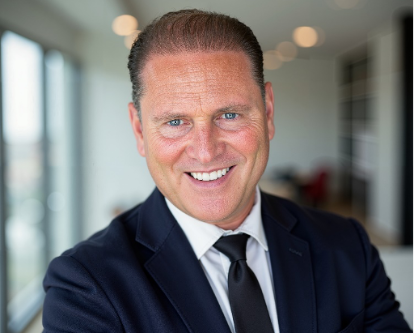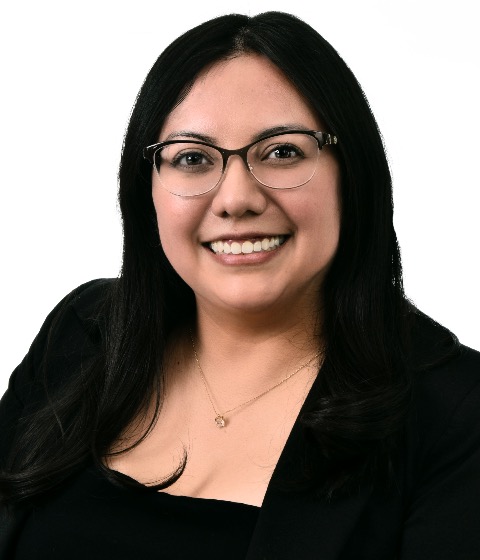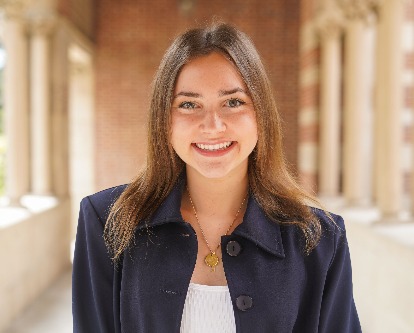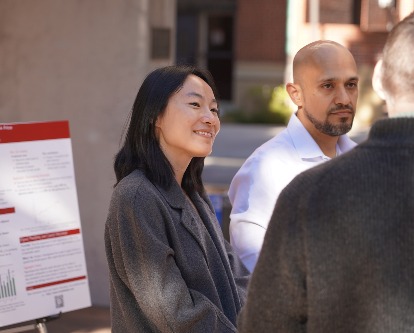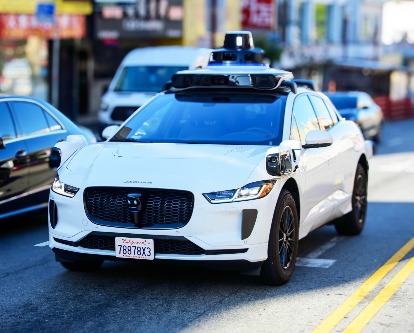But that might never have happened without the Academy of Finance (AOF), of which Lopez is also an alumna, and the Leslie and William McMorrow Neighborhood Academic Initiative (NAI) at USC, which supports more than 1,000 children in college access programs and early literacy programs each year. The NAI program requires that students commit to a seven-year plan of attending Saturday Academy classes along with weekday morning classes at USC, after-school tutoring, and parent workshops.
For the past five years, Lopez has been coming back to campus to talk with current AOF students about her experiences with the Academy, USC, Leventhal and KPMG, where she started as an audit associate seven years ago and is now audit senior manager.
What did you get from your Academy of Finance experience?
The Academy of Finance covered my sophomore through my senior year of high school. The careers I was most familiar with were, for the most part, blue collar jobs, or being a doctor, an engineer or a lawyer. I think the biggest thing I got from the Academy was a broad view of what I could do with my professional career. I took banking and finance classes, I took accounting and entrepreneurship. These were all concepts that really allowed me to see beyond what I knew. And then there were opportunities that I would not have otherwise had. For example, I got my very first internship through the Academy of Finance when I was 16 years old, and they paired me up with a not-for-profit that focused on providing loans to small businesses. I attended Professor [SHIING-WU] WANG'S class, and he taught me how to do a balance sheet and create financial statements.
How did you decide on an accounting major?
What helped me decide on accounting was actually the Academy ofFinance and thinking back to high school and what I enjoyed doing and what I felt like I could learn and grow from. And what stuck most out was those financial statements that I was trying to balance as a junior in high school. I found that extremely rewarding.
Why do you return to talk with Academy of Finance students?
I do it because I think it’s important for them to see themselves in me. And another reason is because I look at our professional lives as a cause and effect. So, for example, in order to bring up our communities, in order to bring up people and diversify our workforce and our leadership, we need people with diverse backgrounds and opinions in positions of influence, right? What I do right now in my current position at KPMG, I do my best to mentor and be an advocate for individuals, but I can only do that with the current pool of candidates that I have. And so in order to diversify that pool, we need to diversify our workforce. And in order to diversify our workforce, we need to diversify our colleges and universities. The way I can do something about that is by spending my time with students. It’s by being a mentor, by providing opportunities, teaching students how to build a resume, how to interview, exposing them to different career paths that they might find exciting or anything that just allows them to see themselves as me. I visit Professor Wang’s class, and I have resume workshops and interview workshops at Foshay, and I bring in people from my company, who are in marketing, HR, tax, and consulting.
What do you share with the students about your experience?
My very first obstacle was: Do I even go to college? And by being honest with the students about every fear that I had, from making that decision to the college admissions process and being in college, I hope it reminds them that they’re not alone. And if I tell them about all the setbacks that I’ve had, I hope it reminds them that things don’t always go as planned. I mentioned to the students a few weeks ago about when I applied for internships in my junior year and didn’t get one. I felt like an absolute failure. But failure isn’t something that you run away from. It’s something you walk straight into it and hopefully do it right the next time and learn from it. Because if you don’t, you will never grow, and you’re never going to see that better version of yourself that hopefully you create over time. So, telling my story and bringing in people with diverse backgrounds who have done different things, I hope that will resonate with them. I would hope that the more time we spend with students, the more excited they get about school and their future. And by doing so, in the long run, we create communities for everyone, whether that’s a professional community, or the one we live in. It’ll become better as our communities become more educated and have those opportunities.
